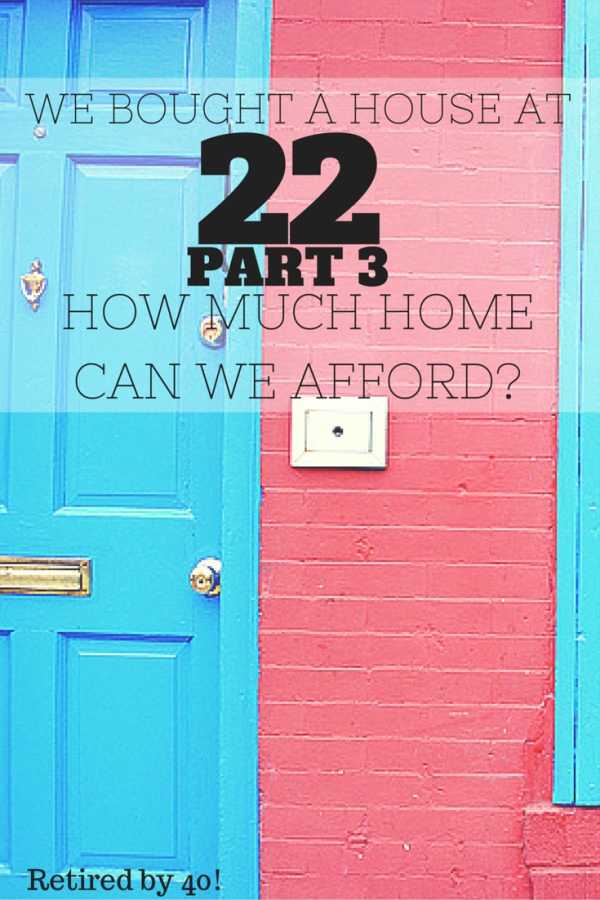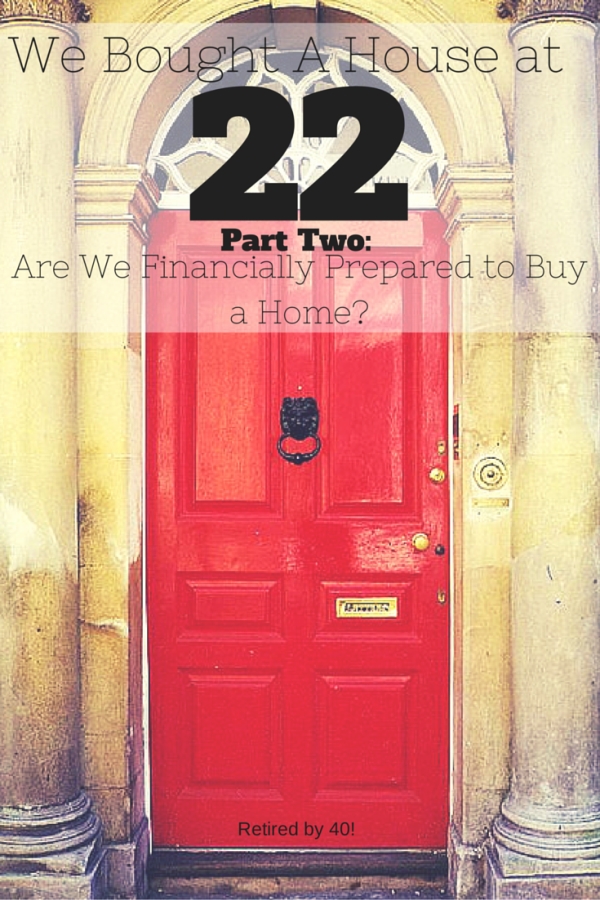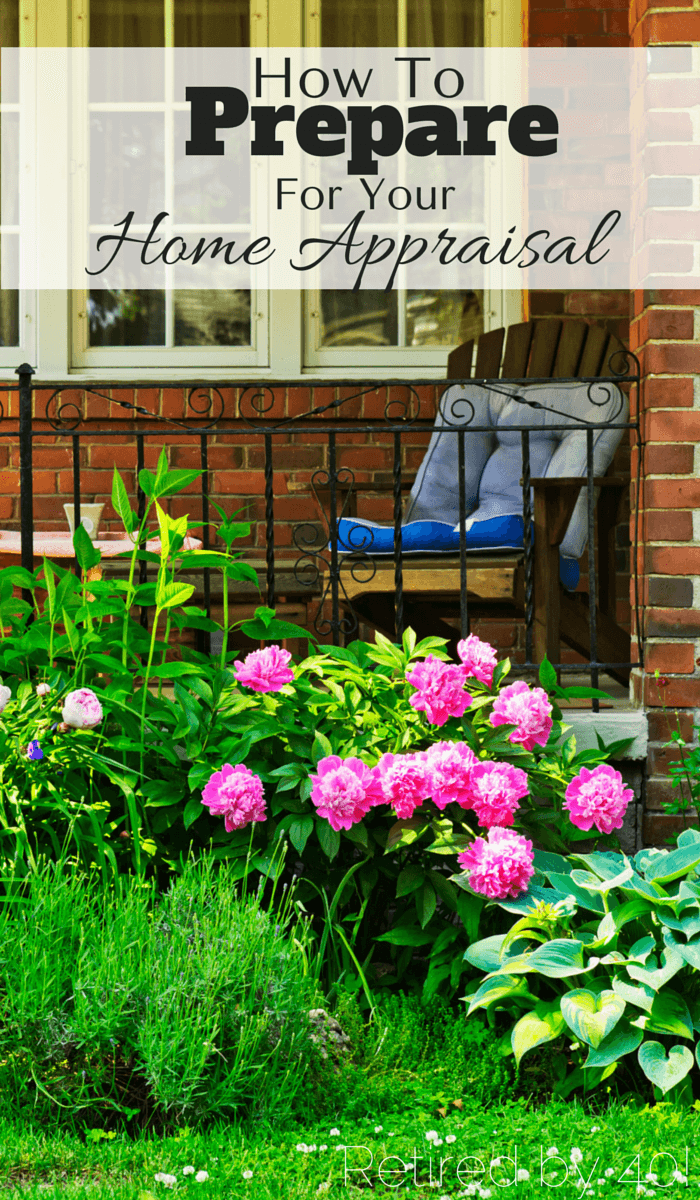Buying a home is, without a doubt, one of the biggest purchases you’ll ever make. Hopefully, this purchase is bigger than your car, but if it isn’t, then we need to talk!
We bought our first home a 22, and since the same home we bought for $46,000 appraised at $87,000, and we’re planning to rent it out when we move out, I think we can consider our first home purchase a win.
{Read About How We Bought Our First Home At 22}
But we knew that our current home would only be temporary, and that we would have to move in 5 years or less, into better school districts by the time our daughter was ready to enter school, which is rapidly approaching.
And while I’m certainly no home-buying expert, I did do thousands (ok, maybe hundreds) of hours of research before we purchased our last home, which I’ll apply to our new home purchase.
Why is this so important?
Because as inexpensive as our first home purchase was, our second one is going to be much more expensive. Better neighborhoods & schools = more expensive houses. Of course, we’ll still be on the lookout for a great deal, possibly even a fixer-upper, but a realistic price range we’re looking at for the area we want to live in is $80,000 at minimum for a fixer-upper that needs a lot of work, or $150,000 for a move-in ready house. Houses in our desired area can run up to $400,000, so if we’re able to find a house we really like for $150,000 or under, we will probably jump on it.
So, we’re being extra careful, which is why I though I would outline the general process for determining how much money you need to save for a house, as well as our opinions and how this list relates to our specific situation.

How Much Money Do You Need To Save For A House?
Down Payment: How much of a down payment will you need? The lowest down payment available is through FHA loans, at 3.5% (but read below to see why that’s not the best ideas), so plan on at least 20% for the down payment. This is a lot of money, and the earlier you can start saving, the better.
Property Taxes: How much will the property taxes at your new home cost? Many times if you’re moving, you’re moving to a better area or a nicer home, which means that your property taxes will rise. How much will you need to save monthly for those taxes? How will that affect your budget? Property tax costs can vary by thousands of dollars each year, even if the houses are only miles apart! Not factoring in property taxes in your budget is what will put unnecessary strain on your finances.
Home Insurance: The area your home is in, outbuildings, pools, and even construction affect how much your home’s insurance is. Make sure to get a quote from several insurance companies before you decide which one to go with, and see how the new insurance payment will affect your budget. Will it put too much strain on your finances, or will it fit nicely with what you had planned? Don’t forget to make sure you’re covered for floods, hurricanes, and earthquakes.
Inspection Fees: Buying a home comes with inspections if you’re being smart. If you put an offer in on more than one home, then you’ll will probably end up paying more than one inspection fee. Inspection Fees run about $350 each, and are non-refundable. DO NOT SKIP THIS. Home inspections, though they may seem unnecessary can reveal costly problem in a home, such as leaky plumbing causing damage inside the walls, electrical wiring that will have to be (expensively) redone to come up to code, and even things like air conditioning or heating units that will need replacing soon.
Appliances + Furniture: Does the new house need appliances? Furniture? How much is all of that going to cost you? Are you prepared for those expenses, because you will need to have that money together very quickly if you want to move into your home. If you’re on a tight budget, you could check out Facebook yard sales or Craigslist to furnish your home or to buy the appliances you need at a discount.
Closing Costs: Closing costs are generally about 4% of the purchase cost. So, on a $150,000 home, you can expect closing costs to be about $6,000, and if you’re not prepared for this, closing costs can be the one thing that keeps you from buying a house.
Repairs: Are you buying a fixer-upper? Does your home need paint? Cleaning? Updating? If you’re serious about purchasing a home that needs repairs, set a strict budget and make sure that you can afford it. If you can’t ake the necessary repairs to your house very quickly after closing, you’re not going to be happy in your new house.
Consider Your Budget
Banks and experts recommend that you spend no more than 25% – 30% of your after-tax income on a house payment. Others say that you shouldn’t spend more than 3x your annual income on a house. And banks generally won’t approve a mortgage that pushes you above a 43% debt-to-income ratio.
So there is a lot of conflicting information.
However, I prefer to see a house payment much lower than 25% of income. 10% is actually a really good place for it to be, but when you get your pre-approval letter from the bank, it will likely be higher than your comfortable with if a 10% payment, but don’t let that tempt you!
In our situation, we would be pre-approved for about $300,000 but that is FAR more than we are comfortable with. We have aggressive savings goals, like living on 50% of our income, and quite frankly, I cringe at the thought of papying $150,000 for a house, which is actually a pretty low-priced home for the area we want to live in.
Whatever you decide you are comfortable with, make sure to run a “test budget” with a tool like Personal Capital. Factor in the new house payment, additional utility bills, saving for insurance and taxes, and factoring in home maintenance or repairs. Will the new expenses strain our finances or do they leave your budget stress-free and happy?
{Find Free, Easy To Use Tools To Manage Your Money}
If you don’t know where your budget stands, I highly suggest you check out Personal Capital. Personal Capital is very similar to Mint.com, except it gives you way more information and is much easier to use. Personal Capital allows you to aggregate your financial accounts so that you can easily see your entire financial situation. You can connect accounts like your mortgage, bank account, credit cards, investment & retirement accounts, and more. Even better, Personal Capital is FREE.

Save For The Down Payment
Depending upon the type of mortgage you are approved for, the amount of down payment you’ll need will vary.
If you’re plannning to take an an FHA mortgage, you can put down as little as 3.5%. However, an FHA mortgage erequires you to pay PMI (Private Mortgage Insurance) that could total hundreds of extra dollars each month because your down payment was less than 20%. If your down payment is less than 20% you can absolutely still purchase a house, but make sure to factor in the additional PMI premiums into your budget.
To take out a classic mortgage, you will need to put down at least 20%, but because of that you will not have to pay PMI. 20% as a down payment is significantly more, though. 3.5% on a $150,000 mortgage is $5,250. 20% on that same $150,000 is $30,000. As you can see, there is a big difference between the two. I may not feel like taking the extra time to save up 20% is worth it, but the thousands of dollars you’ll save not only in PMI premiums but in interest you don’t have to pay because you put more down is what you need to keep sight of.
If you are purchase a second home, like in our situation, since we will be using our first home as an income property, you will need to save 30% or more. The actual restrictions vary by bank or credit union, so make sure to let them know that you will not be selling your first home if applicable.
Can You Use The Equity In Your First Home?
If you’re like us, and planning to use your first home as an income property, then you may want to consider using the equity in the first home to help out with the 30% down payment on the second one.
Banks will absolutely allows you to do this, but you need to be up front with them about your plans so that they can help you make sure that all of the paperwork is in order.
In most cases, you can only use up to 85% of the home’s value as a down payment on another house…let me give you an example: Our current home appraised at $87,000, but we owe $53,000. $87,000 – $53,000 = $34,000 in home equity, but we cannot use all of that equity as the down payment on our second home. 85% of 87,000 is $73,950, so to find out how much of the equity we could use we would subtract $53,000 from $73,950.
In this example, we could use $20,950 of the equity in our home as part of the down payment on our next home.
The second home scenario may not apply to everyone, but because I try to share my knowledge and experience very honestly with you here, I wanted to share it with you!
So, assuming that we choose to purchase a $150,000 home – the top of our budget – we will need to save $45,000 for the down payment + $6,000 for closing costs. We will also have to carefully consider the increased/decreased costs associated with the house we choose, especially our property taxes.
That is a big chunk of change to save up and then get rid of just for a down payment for the house, and you can see why we’re leaning towards the idea of a lower-cost house. We do have one advantage on our side, though, the fact that we have about $20,000 of equity in our current home that we will be able to use as part of our down payment. Or, we could use the money we saved as the down payment on a fixer upper and then use the equity in our current home to fix up the new one. Either way, we have some saving to do.
Whatever we (or you) decide to do, we have some saving to do! Luckily, last year we paid off $24,000 of debt, I started a new job, and we are effectively living on about 50% of our income, so we just have to be patient an save steadily.
I have tons of resources for setting up a budget, saving money, making more money, and managing your money here on the website, so if you’re wondering how much you need to save for a house, check them out to help jumpstart your goals or keep them on track!
Are you saving for a house? How long have you been saving?

P.S. Love this post? Share it with your friends for a chance to win a copy of Marriage & Money!
This post may contain affiliate links. See my disclosure for more information.













[…] Insurance, and it’s the insurance premiums you pay with your mortgage as a result of putting less than 20% down when you bought your home. You may even have put as little as 3.5% down through an FHA mortgage, […]